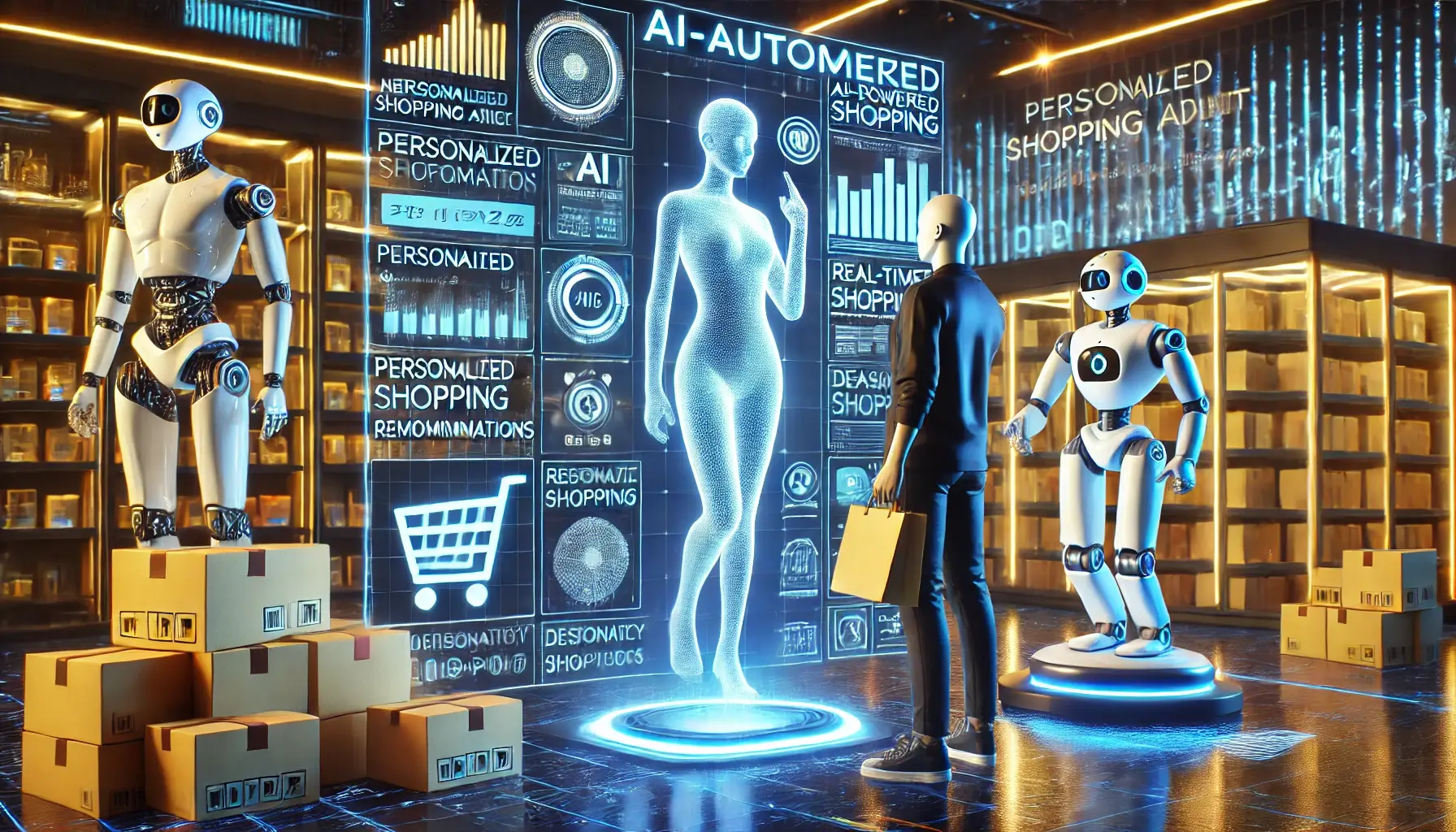-
How Digital Nomads Are Redefining Work and Lifestyle 🌍💻
Mar 06, 2025 | 39 Comments -
How Artificial Intelligence is Transforming Healthcare 🏥🤖
Mar 06, 2025 | 0 Comments -
How Cryptocurrency is Reshaping the Global Economy 💰🌍
Mar 06, 2025 | 0 Comments -
How to Build a Strong Personal Brand: Stand Out & Grow Your Influence 🚀📢
Mar 02, 2025 | 0 Comments -
The Power of AI in Business: How Artificial Intelligence is Transforming Industries 🚀🤖
Mar 02, 2025 | 0 Comments -
How Smart Homes Are Changing the Way We Live 🏡🔋
Mar 02, 2025 | 0 Comments -
How Electric Vehicles Are Revolutionizing Transportation 🚗⚡
Mar 02, 2025 | 0 Comments -
The Future of Renewable Energy: How Green Technology is Changing the World 🌍⚡
Mar 02, 2025 | 0 Comments

The Future of E-Commerce: How AI and Automation Are Revolutionizing Online Retail
E-commerce is evolving rapidly, with AI and automation transforming the way consumers shop online. Businesses are leveraging artificial intelligence, machine learning, and automated logistics to improve customer experience, streamline operations, and drive sales. As digital shopping trends continue to grow, companies must adapt to new technologies to remain competitive in 2025 and beyond.
The Rise of AI in E-Commerce
Artificial intelligence is revolutionizing e-commerce by enhancing personalization, optimizing product recommendations, and automating customer interactions. AI-driven solutions help businesses understand consumer behavior, predict trends, and improve sales conversions.
1. AI-Powered Product Recommendations
AI analyzes customer browsing and purchasing history to provide personalized product suggestions, increasing engagement and conversions.
- Machine learning algorithms predict customer preferences.
- Dynamic pricing models adjust prices based on demand and competition.
- AI curates personalized shopping experiences with tailored content.
2. AI-Driven Chatbots and Virtual Assistants
AI-powered chatbots provide 24/7 customer support, improving response times and enhancing user satisfaction.
- Chatbots answer common customer queries instantly.
- AI-powered assistants handle order tracking and refunds.
- Conversational AI integrates with messaging apps for seamless shopping experiences.
Automation in Online Retail
Automation plays a crucial role in improving efficiency, reducing operational costs, and optimizing supply chain management. Retailers use automated systems to enhance customer experience and streamline backend processes.
1. Automated Order Fulfillment
Robotic warehouses and AI-driven logistics enable faster, more accurate order fulfillment.
- Amazon, Alibaba, and Walmart use automated warehouses for rapid delivery.
- AI-powered inventory management predicts restocking needs.
- Automation reduces human errors in picking and packing processes.
2. Smart Supply Chain Management
AI improves supply chain efficiency by predicting demand, optimizing inventory levels, and reducing waste.
- Predictive analytics identify trends and seasonal demand fluctuations.
- Automated demand forecasting minimizes stock shortages and overstocking.
- Blockchain technology enhances supply chain transparency and security.
3. Voice Commerce and Smart Shopping Assistants
Voice search and smart assistants like Alexa, Google Assistant, and Siri are transforming online shopping habits.
- Voice search is expected to dominate e-commerce transactions.
- AI-powered shopping assistants help customers find products effortlessly.
- Brands optimize websites for voice-based search queries.
Emerging E-Commerce Trends in 2025
1. Augmented Reality (AR) Shopping
AR enhances online shopping by allowing customers to visualize products before purchasing.
- Virtual try-on for clothing, makeup, and accessories.
- Furniture and home decor visualization through AR apps.
- Interactive AR experiences for immersive product exploration.
2. Social Commerce and Livestream Shopping
Social media platforms like Instagram, TikTok, and Facebook are becoming major e-commerce hubs.
- Livestream shopping events boost engagement and real-time sales.
- Influencer collaborations drive product recommendations.
- Social commerce integrates direct purchases within social platforms.
3. Cryptocurrency and Digital Payments
Blockchain-based payments and cryptocurrency adoption are growing in e-commerce.
- Bitcoin and Ethereum payments offer secure transactions.
- Stablecoins provide low-fee payment options.
- Decentralized finance (DeFi) solutions integrate with online retail platforms.
Challenges Facing the Future of E-Commerce
Despite technological advancements, e-commerce businesses face challenges:
- Cybersecurity Threats: Increasing cyberattacks on payment systems and customer data.
- Logistics and Supply Chain Issues: Global disruptions impact delivery timelines.
- Regulatory Compliance: Stricter data protection laws and online consumer rights.
- Customer Trust: AI-driven personalization must balance privacy concerns.
How Businesses Can Adapt to E-Commerce Trends
To remain competitive, e-commerce businesses must:
- Invest in AI-driven automation for personalized shopping experiences.
- Optimize websites for voice search and smart assistants.
- Leverage AR technology for interactive product experiences.
- Adopt sustainable packaging and eco-friendly supply chain solutions.
Future Predictions for E-Commerce in 2030
Beyond 2025, e-commerce will see further innovation, including:
- AI-powered virtual shopping malls with immersive digital experiences.
- Expansion of decentralized marketplaces using blockchain.
- Fully automated fulfillment centers with drone deliveries.
- Widespread adoption of cryptocurrency for online transactions.
Conclusion
The future of e-commerce is driven by AI, automation, and new digital shopping trends. Businesses that embrace these advancements will thrive in the competitive online retail space. By optimizing customer experience, enhancing operational efficiency, and adopting emerging technologies, e-commerce brands can position themselves for long-term success in 2025 and beyond.
0 comments
No comments yet. Be the first to comment!
Your comment